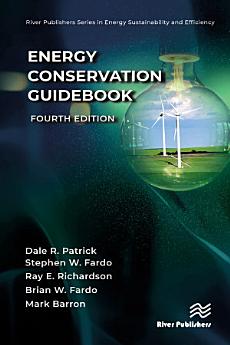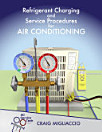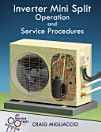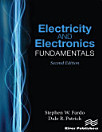Energy Conservation Guidebook: Edition 4
eBook 정보
What does the 21st century hold? Conflicts in the Middle East, high prices for petroleum, and increasing population worldwide will all be significant influences on energy and its conservation. Considerable discussion of climate change, global warming, and increased concerns in regard to our electricity supply have provided motivation for building energy demand to be more flexible.
Energy Management and Conservation, Fourth Edition, provides a very practical discussion of how energy can be managed and saved in most types of buildings. This edition not only updates the previous edition but adds updated content concerning energy cost reduction/going green to improve the environment. The authors of this book have written several books that use the systems approach. Through the use of the systems approach, the reader will be able to grasp how different parts of a building fit together to form a unit that uses energy efficiently. This text provides a thorough and practical discussion of the operation of systems that are found in most types of buildings. Each system is discussed with energy management and conservation in mind/going green to save money and improve the environment. There are many ways to manage a building to accomplish efficient energy conservation. Several of the chapters have checklists at the end to summarize ways of conserving energy that relate to the chapter.
Important changes in this edition include coverage of governmental requirements from agencies such as Environmental Protection Agency (EPA), United States Department of Energy (USDOE), and American Society of Refrigerating, Heating and Air-Conditioning Engineering (ASHRAE), updated as of 2022 standards. Instrumentation updates include types of sensors and the concept of "smart" devices such as meters. Addition of computer building maintenance management systems and new updates for renewable energy resources are included. Enhancements to existing systems content (such as variable frequency drives for pumps) have been carefully added.
저자 정보
Dale R. Patrick served as a Professor in the Department of Applied Engineering and Technology at Eastern Kentucky University. His experience includes teaching and organizing laboratory classes in electrical engineering/electronics technology for many years. He completed Bachelor of Science and Graduate Degrees at Indiana State University. His experience also includes research projects, technical teacher training, and energy consulting for business and industry. He and Dr. Fardo have co-authored over 30 textbooks and laboratory manuals.
Stephen W. Fardo is currently a Foundation Professor in the Department of Applied Engineering and Technology at Eastern Kentucky University. His experience includes teaching and organizing laboratory classes in electrical engineering/electronics technology for many years and coordinating/advising technical teacher programs for the State of Kentucky. He completed Bachelor of Science, Master of Science and Doctoral Degrees at Eastern Kentucky University and University of Kentucky. His experience also includes research projects, technical teacher education, and energy consulting for business and industry. He and Dale Patrick have co-authored over 30 textbooks and laboratory manuals.
Ray E. Richardson is currently is a Professor in the Department of Applied Engineering and Technology at Eastern Kentucky University. His experience includes teaching and organizing lecture and laboratory classes in electrical engineering/electronics technology since 1985 as well as teaching technical seminars, technical writing, and classes in the graduate program. He completed Bachelor of Science and Master of Science Degrees at Eastern Illinois University, and doctorate level at the University of Illinois. He is a certified Technology Manager at the Senior level by ATMAE. Other experience includes research projects in technical education and consulting in the manufacturing, food, and electronics areas.
Brian W. Fardo served as an Adjunct Professor in the Department of Applied Engineering and Technology and the Noel Studio for Academic Creativity at Eastern Kentucky University. His experience includes teaching classes in applied creative thinking, electrical systems, materials and processes, transportation, manufacturing, construction, engineering graphics, and quality control. He has a B.Sc. Degree in Industrial Distribution and Logistics, an M.Sc. in Technology Systems from East Carolina University, and an M.Sc. in Career and Technical Education Eastern Kentucky University. He has completed coursework for a Doctoral Degree in Engineering/Technology Education at North Carolina State University. He currently owns and operates a telecommunications business.
Mark Barron is an environmental and sustainability project manager with CBRE. Mr. Barron has been involved with HVAC and building management systems since 1998. He has been an Association of Energy Engineers certified energy manager since 2016. He completed Bachelor of Science and Master of Science degrees at Eastern Kentucky University.





